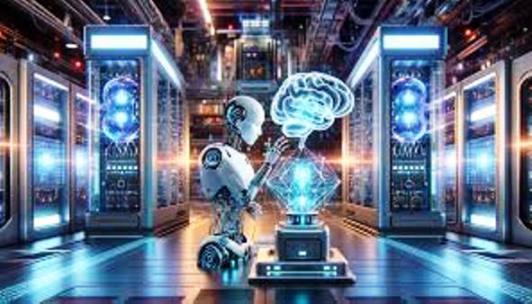Quantum computing and artificial intelligence (AI) are two technologies touted to revolutionize modern computing. In 2022, AI emerged from deep tech to a household name through the release of ChatGPT and other large language models (LLMs). Meanwhile, quantum computers are expected to start solving commercial problems by 2030, and many in the industry anticipate a “ChatGPT moment” to be on the horizon.
RELATED: Finetuning computing – IDTechEx covers dominant computing trends
A deep dive into recent progress from the industry can be found in the “Quantum Computing Market 2026-2046” report by market intelligence firm IDTechEx, along with 20-year forecasts, benchmarking, and profiles of key players developing the eight leading technology approaches: superconducting, trapped ion, photonic, neutral atom, silicon spin, diamond defect, topological, and annealers.
New in this edition, the report explores the deployment of quantum computers in data centers and HPC facilities, and goes into detail about the relationship between quantum and AI, where this article will give a brief overview.
Unlocking quantum with machine learning and AI
Quantum computers are incredibly complex machines in almost every aspect, and players across the industry are exploring how AI could improve tasks from hardware design and use case development to quantum control and error correction. Machine learning tools are already used widely in both pre- and post-processing for quantum computations.
In the preprocessing stage, AI can be used to optimize quantum circuits, minimizing the number of qubits or operations that are needed to run an algorithm. This optimization is crucial to squeezing out as much power as possible from limited quantum hardware, and key players such as NVIDIA are already collaborating with supercomputing centers to improve how hybrid quantum-classical workflows can best allocate quantum computing resources.
Another area where specifically LLMs or AI agents could assist in quantum computing is in the interface between an end user and a quantum computing platform. Near-term applications for quantum computing include simulation and optimization problems, attractive for a range of industries that may not be acquainted with the quantum software stack.
Microsoft, and potentially other players that host quantum computing platforms, see potential here for AI tools to take end-user queries and return software already packaged to slot into a quantum software stack.
For years, the quantum industry has faced talent shortages due to the technical intensity of the field and a limited pool of specialists (e.g. PhD or master’s graduates) to recruit from. While schemes to improve the talent pipeline develop, could AI agents help to bridge the talent gap in the meantime?
Use cases for AI in a quantum computing workflow. Source: IDTechEx.
Quantum vs AI
There is some overlap between the application areas of quantum computing and AI/machine learning, such as in accelerating drug discovery or optimizing logistics. However, the two technologies have fundamentally different strengths and weaknesses. While machine learning leverages extremely large datasets to recognize patterns and make probabilistic deductions, quantum computers actually struggle with large input datasets and instead excel at computing problems that are very complex even with relatively few input variables.
Instead of competing technically, the rivalry between quantum and AI comes down to a much simpler fact: the limited funding and priorities of both private and public investors. Since AI has proven its commercial value in the mass market while quantum computers are still largely in the prototype and development stage, there is concern that venture capital and government strategies will increasingly pivot to favor AI over quantum.
For example, in 2023, both Alibaba and Baidu (Chinese giants of e-commerce and online search) shut down their respective quantum computing research units. In terms of investments, some players attribute a dip in funding since 2022 as focus shifting to AI.
Quantum computing market is becoming more consolidated
However, in truth, the quantum computing market is simply becoming more consolidated, with investments in the last 12 months focused on a smaller number of hardware players but funding rounds reaching hundreds of millions of USD.
Quantum technology is also moving up the priority list for national strategies, driven by consistent technical progress and the risk of falling behind in the race for ‘quantum supremacy’. In addition to billions of USD of public funding, national initiatives are also instrumental in forming both the quantum and AI industries.
In the face of economic difficulties, trade restrictions, and tightening public budgets, the quantum industry must prove its strategic value sooner rather than later to avoid losing momentum. After all, while several quantum computing companies have secured multi-million-dollar contracts within the last year, many of these are still supported by government funds.
Summary and market outlook
Ultimately, machine learning and quantum computing have drastically different strengths and weaknesses, which could potentially be highly complementary. The value proposition of quantum computers is to accelerate the computation of problems difficult for classical hardware, even for AI clusters. Meanwhile, AI tools could help optimize quantum hardware and software or even act as a bridge between quantum technology and the end user.
The industry is making consistent progress towards commercial advantage, and major players in AI, such as Microsoft, Google, and NVIDIA, are getting increasingly invested in quantum computing. In-depth analysis of recent breakthroughs, current market leaders, and 20-year forecast projections can be found in the “Quantum Computing Market 2026-2046” report.






























